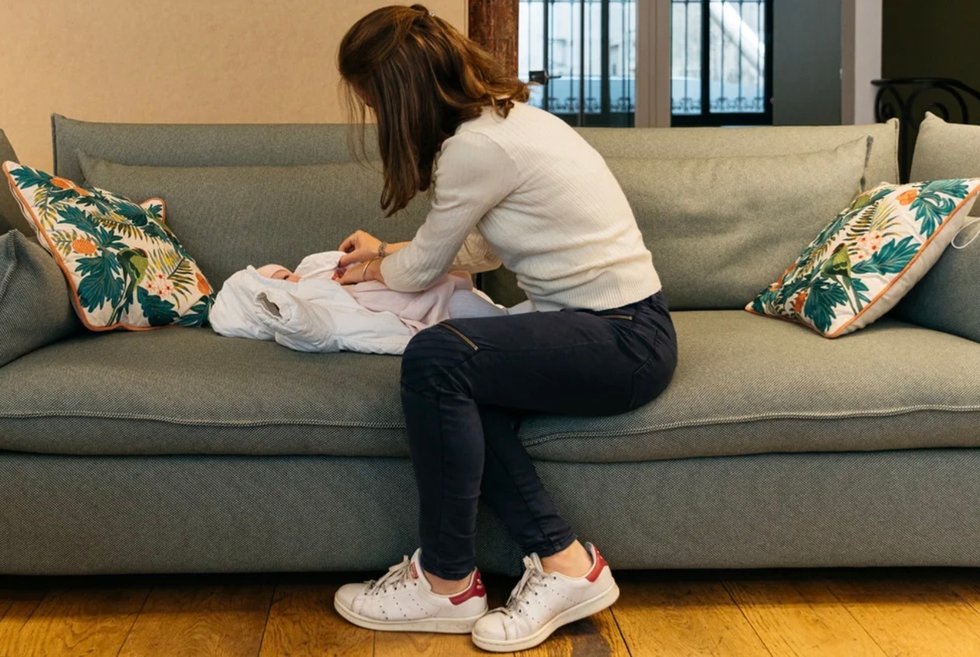Supporting women employees through healthcare
Apr 27, 2023
5 mins


Freelance writer, reporter
Gender equity isn’t just about closing the wage gap. It’s a key value companies need to consider on all levels, from benefits to scheduling. Today, one of the biggest gender parity issues employers grapple with is how to best offer women workers access to solid reproductive healthcare services — including care for menopause, fertility, and pregnancy.
Fortunately, myriad online platforms exist to assist companies. Peppy, for one, is a B2B digital health platform that connects users with “real, human experts” that provide responses and care so these users can “bring their best selves to work.” Employees whose workplaces partner with the UK-based company get perks like private chats with experts, one-on-one virtual doctor consultations, prescription ordering services and access to educational health-related resources. Peppy’s app and website allow workers to easily connect with healthcare professionals and thus avoid the common cycle of turning to Google for health-related inquiries (or missing work for doctor’s visits that could have easily been dealt with over the phone).
Ever since the onset of the pandemic — which sparked a big conversation among employers about accessibility and healthcare services — more businesses are turning to Peppy. In March, co-founder and co-CEO Dr. Mridula Pore spoke with Welcome to the Jungle about how the digital health platform operates, the changes it can make to uplift working women, and the broader issue of gender equity at work.
And why did you initially start Peppy? What sparked the idea and how did it come to fruition?
We’re three co-Founders at Peppy—Evan Harris, Max Landry, and me. We all had our respective experiences with healthcare access and came to the idea with different personal and professional perspectives. But one thing was abundantly clear to all of us—that there are some major gaps in the provision of healthcare that really affect people’s abilities to stay and thrive in the workplace.
These gaps are only getting worse as healthcare systems around the world struggle to keep up with the needs of aging populations. Workplaces really have to face the fact that they must embrace multigenerational and diverse workforces. Peppy was an opportunity for us to fill a part of this void in healthcare.
So, we started out focusing on early parenthood, as we all had young kids at the time, but quickly realized that it wasn’t just new parents in the workplace who were experiencing a lack of support…it turned out that this problem also applied to other underserved areas of health like menopause, fertility, and other issues under the umbrella of reproductive health.
So Peppy provides free employee support for these reproductive health conditions. Normally, how do women get care for these issues?
Quite often it’s difficult to access specialist care like this, but the problem is even further upstream. Many women will experience the symptoms of menopause or endometriosis and not know exactly what it is happening. And quite often, their symptoms will get dismissed by family members—and maybe even healthcare professionals who don’t have specialist knowledge or don’t think that the symptoms are severe enough to warrant a diagnosis or treatment.
Sometimes, it can take years for endometriosis to be diagnosed properly. In the US, gynecologists are usually only provided with one hour of menopause training, which is simply not enough time to be able to fully understand the ways in which it can affect women differently. However, the impact these issues have on women’s quality of life and long-term health is real. And there is often nowhere to turn. One way is to pay for care out-of-pocket, if they can afford and access it.
Peppy is basically directly addressing a huge access gap that so many women face, because the employer pays for their staff to get access to expert care and support, which can save so much time and anguish.
On another note, Peppy was involved in a recent UK report that found that firms are still falling short of female talent objectives. Why is recruiting and retaining women employees such a pressing challenge currently?
Yes, that’s right. The recent report conducted by Peppy in consultation with the Reward and Employees Benefits Association (REBA), found that 93% of UK businesses are still struggling to attract and retain female talent.
We live in an increasingly demanding recruitment environment, where employees now expect much more from their prospective employers than they did ten—or even five—years ago. Women are often disproportionately affected by health challenges such as reproductive health conditions. One in ten women actually ends up leaving the workforce because of menopause symptoms, which is an astonishingly high rate for such a widespread health issue. Sixty-three percent of women in one study also said that menopause symptoms negatively affect their work. In this context, access to healthcare benefits is attractive to employees, and for employers who hope to attract and retain talent.
And is this only a UK-based challenge? Do you have input on whether there is a similar situation in the US?
Improving access to women’s healthcare in the workplace is a worldwide issue, because these health challenges affect all women across the globe. This is really rooted in a lack of understanding of the impact of reproductive health on the workplace; every single woman on the planet will experience menopause, and yet in the vast majority of workplaces there is no structure in place to support women through this period of their lives.
It’s true that advocacy and public awareness on issues such as menopause are more advanced in the UK and Europe than they are in the US, but we treat the US with the same approach and the same mission-driven goals to improve the lives of women in the workplace.
I think there is a growing sense of optimism that more companies are taking the issue of women’s health more seriously, but the challenge is still very stark. In the US, around 6,000 women reach menopause every day. Also, the conditions endometriosis and polycystic ovary syndrome (PCOS), which Peppy now supports, affect roughly one in ten women.
What suggestions would you give companies to do better when it comes to recruiting and retaining women employees?
Companies need to focus on equity over equality, something which various advocates and researchers in women’s issues have been speaking about for many years now. It’s simply not good enough for businesses to take the line of “equal treatment” in respect of health, because people experience health in different ways. For CEOs and HR managers who want to do better in retaining female employees, they need to ask themselves: “What do the women who work here experience in relation to their health?” and “Are we doing enough to address this?”
And do you have any thoughts on the gender pay gap? How is that a part of this discussion?
Gender parity at work and the gender pay gap are two different issues, albeit connected ones. Existing research shows that the gender pay gap opens when a woman has her first child—and never closes again, because women are disproportionately impacted by caring responsibilities for both children and the elderly. Women are also, as we’ve detailed, underserved for their reproductive health, and there is increasing evidence that this is another reason they participate less in the workplace—or even leave the workplace altogether.
A robust plan for gender equity will need a long-term plan to get the right mechanisms in place to attract, nurture, and develop female talent. They will result in women being more likely to stick around because they get the support they need through services like Peppy. When those shifts become normalized in our working culture, things will start moving faster.
Many companies make bold promises when it comes to DEI initiatives. But how can they actually hold themselves accountable, making sure they truly enact change when it comes to issues like parity at work?
It’s always good to see companies making public commitments to improve the lives of their employees on DEI issues. The best thing business leaders can do, though, is to listen to their staff and base their targets, policies, and procedures around the feedback and ideas they get from the people at the center of the reforms: the employees. Partnering with Peppy, just as an example, is a really good way of demonstrating a commitment to addressing underserved areas of health in the workplace. This ensures that these promises extend to tuning and providing what employees really need with regard to their healthcare.
Photo: Welcome to the Jungle
Follow Welcome to the Jungle on Facebook on LinkedIn and on Instagram and subscribe to our newsletter to get our latest articles every day!

More inspiration: DEI for leaders

Leadership: Why do women work while men triumph?
Author Gill Whitty-Collins tells us that men aren't more competent than women, but they possess a more strategic relationship to work.
Sep 07, 2022

Don’t Look Up: 5 lessons on women and leadership
Don’t Look Up, is a pretty obvious satire on climate change denial. It also has some clever things to say about women in power.
Feb 09, 2022

Sexism at work: why those who deny there’s a problem are a danger
“We are a meritocratic company”, “there is no sexism here”, “I’m no sexist”... It is precisely those ‘deniers’ who perpetuate bias the most!
Dec 01, 2021

Are you giving sexist feedback? Here’s how to do better
A study shows that feedback given to women is based on gender biases that hinder their career development. It's time to fix a flawed feedback system.
Jun 03, 2021

Nina Goswami: taking the lead on diversity at the BBC
As the BBC’s first creative diversity lead, Nina Goswami is paving the way to better representation for other media across the world.
Feb 04, 2021
Inside the jungle: The HR newsletter
Studies, events, expert analysis, and solutions—every two weeks in your inbox

